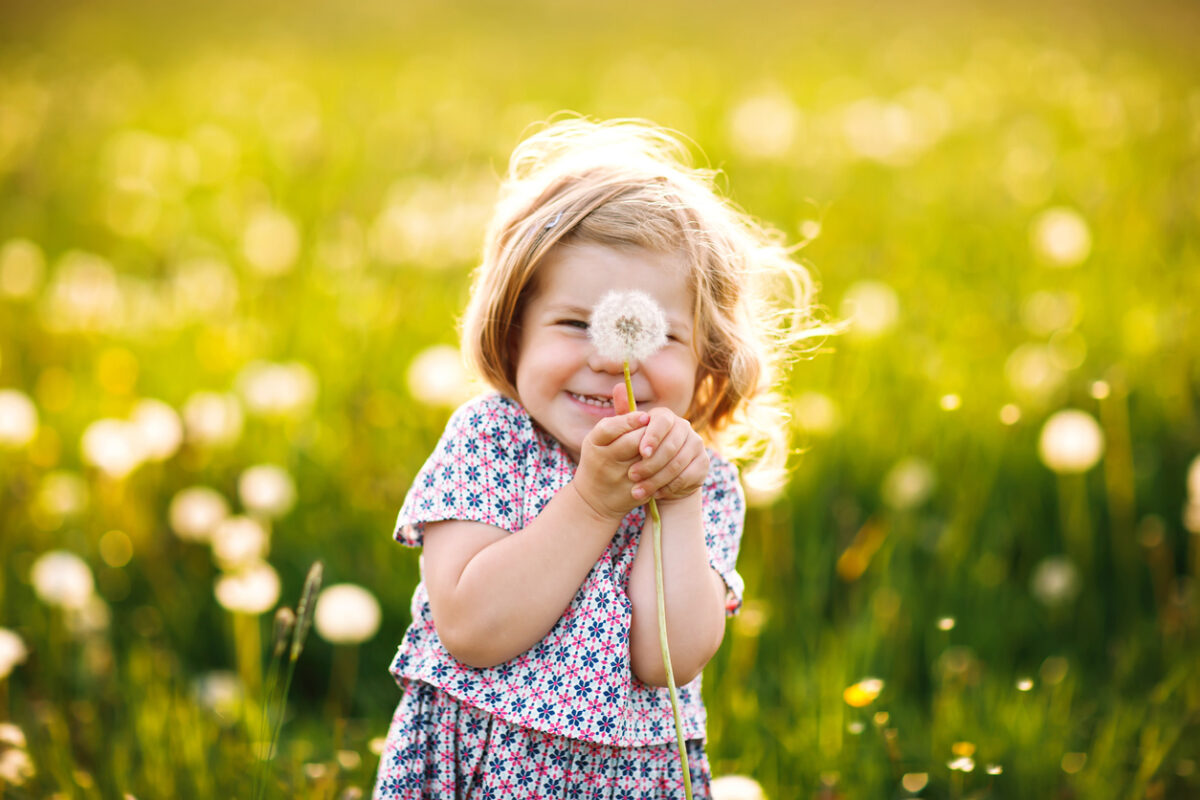Nature is still the most beautiful and important playground for children. For the children of the 60s and 70s, playing outside was also still an essential part of their lives. Not to mention the many generations of children before them. In addition, children used to have a much larger radius of action in which they were allowed to play unsupervised. Today, however, children rarely get out into the fresh air, and elementary experiences of nature often fall by the wayside: digital media tie them to the screen. Travelling to school or leisure activities is mainly done by parents’ taxi or bus. School and homework also take place indoors and without movement. And when they do go outside? Then many parents watch over their children’s every step.
Yet playing in nature is so much fun and is also extremely important for children’s development. The fresh grass between the toes, the first rays of sunshine tickling the skin and all the exciting colours and shapes – no video game can offer that. Read on to find out how nature experiences influence child development.
Table of contents
- Discovering nature with all senses
- How experiencing nature strengthens the ability to learn
- Developing creativity – with nature experiences
- Reducing stress – gaining self-confidence
- Encouraging experiences of nature – outdoor play ideas
Discover nature with all your senses
Overweight, clumsiness and too little exercise – these are deficits of our time. This is precisely why outdoor play is more important than ever for children. Here, the little ones sharpen their senses and open their minds. When climbing, for example, children have to coordinate their eyes, hands and feet. A walk through the forest alone is an adventure tour for the senses. There are all kinds of trees and bushes to discover while the ears pick up the chirping of birds. Then there are the exciting scents of conifers, fresh grass & co. In nature, all the senses are on standby. Through regular experiences with nature, even small children become active, train their dexterity and develop their sensory perceptions. The immune system also benefits from spending time outdoors. By the way, the immune system of adults also benefits.
How experiencing nature strengthens the ability to learn
Brain researcher and author Prof. Dr Gerald Hüther sees a significant deficit in the way children spend time in nature. The neurobiologist considers nature as an ideal, living development space for children. Nature leaves it up to children to weigh up risks and make decisions about play. There is plenty of space for romping and moving around. Will a child dare to jump over the stream? There is no age recommendation! What significance do chestnuts, branches or pine cones have in the game? Here, too, there are no guidelines. And that’s a good thing! Because every mastered challenge and every creative idea releases certain messenger substances in the brain’s reward centre. And these convey a good feeling. Motivation increases, and nerve cells are stimulated to connect more strongly. This is how children learn all by themselves!
Best of all, these “moments of success” awaken an inner drive in children. They want to try out their ideas, create something new, in short, make a difference. And outdoor play can do all that!
Developing creativity – with nature experiences
Nature is the greatest source of inspiration for children. Here, the little ones can give free rein to their creativity. While many toys dictate the course of play, in nature, all possibilities are open. Wood, flowers, sand, stones, water or earth – here, children can discover or combine the most diverse materials, shapes and objects. Soup can be brewed from leaves and mud, and a small stick can be turned into a sword. All kinds of exciting experiences of nature await the little ones. Creativity develops all by itself.
Stress relief – gain self-confidence
Nowadays, even children have to deal with more and more pressure. The right balance is therefore essential. The tranquillity of nature helps to relieve stress and lets the tension of everyday life subside. The numerous colours and plays of light of the flowers, trees and bushes alone have a relaxing effect on the soul. It has been proven that children who regularly play outdoors are less likely to suffer from anxiety disorders or depression. In addition, experiences in nature can increase self-confidence, as every child has to decide for themselves which challenge they want to take on. “Do I dare to climb this tree? How high do I dare to go up? Can I make the jump over this little stream?” Here, the youngsters have to weigh up the risk themselves and learn to assess their own abilities. Mastering challenges motivate them to try new ones, and their motor skills and self-confidence improve as if by magic. Just “playing”!
Encouraging nature experiences – outdoor play ideas
Children should be regularly motivated to experience nature. Nature offers numerous opportunities for play:
Making a forest mandala
For the first game, children only need a cloth bag. Then they go on a discovery tour in the forest. Here, the little ones can collect a wide variety of natural materials. From pine cones to stones to flower petals – there are no limits to their imagination. The only rule is that they must not pluck any flowers or branches from the tree. At the end of the discovery tour, the little ones drape their collected utensils into a pretty forest mandala. A forest figure made of chestnuts and branches is also a good idea. In addition, talk to the children about the collected utensils to strengthen their experience of nature.
Experiencing nature through a magnifying glass
Nature offers an infinite number of impressions. Many things do not even catch the eye at first glance. On closer inspection, children gain unexpected insights into the fascinating world of nature. Therefore, equipped with a magnifying glass, they go on a discovery tour. Perhaps the little ones have a question that has interested them for a long time. How do spiders actually build their webs? Or do centipedes really have a thousand legs? That’s what the little nature detectives have to find out now.
Little treasure hunters in the forest
The treasure hunt is particularly suitable for groups of several children. The little ones can now go off and look for various objects in the forest that are on a previously determined treasure list. A possible treasure list could be, for example, the following task:
Search …
- something that is round
- a stone
- an edible plant
- a feather
- an oval leaf
- a fruit from a tree
- something you like very much
Are you looking for more ways to bring nature experiences closer to children? Read about how you can motivate children to exercise more. On the eibe Blog, you will also find creative handicraft instructions with a wide variety of natural materials.
Picture: romrodinka / Essentials Collection / istockphoto.com

